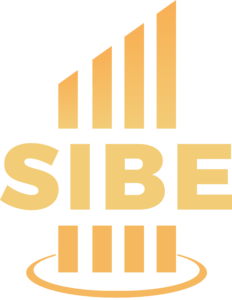In the world of business, planning is an essential ingredient for success. Whether you are starting a new venture or looking to grow an existing one, having a well-thought-out business plan is crucial. Business plans come in various forms, each tailored to serve specific purposes and address unique challenges.
In this article, we will explore seven different types of business plans so you can decide which one you need for your business.
Categories of Business Plans
When it comes to business plans, one size does not fit all. Depending on the complexity and scale of your venture, you may need to choose a business plan that aligns with your specific needs. Business plans can be categorized into three main scopes: simple, standard, and comprehensive.
Simple Business Plans
Simple business plans are concise and focused, providing an overview of your business idea or concept. They are ideal for individuals or small businesses looking to test the viability of their ideas, communicate with potential stakeholders, or secure initial funding.
The scope of your business, together with the cost of setting it up, will determine if you need a simple business plan or not.
For instance, you can opt for a simple business plan idea when starting a regular coffee shop since it is not as capital-intensive as starting a venture like a cocoa processing factory.

Simple business plans are agile and adaptable, allowing you to iterate and refine your ideas quickly. They are often used as a starting point to gather feedback, secure initial investments, or serve as an internal reference for early-stage startups.
Standard Business Plans
Standard business plans offer a more comprehensive and detailed approach compared to simple plans. They are suitable for businesses seeking to establish a solid foundation, secure funding from investors or lenders, or guide the operations of an established company.
A standard business plan could be for internal use, external use, or both, just like a simple business plan. What differentiates these categories of business plans is usually the scope of the venture and how capital-intensive it is.
Comprehensive Business Plans
Comprehensive business plans are extensively and thoroughly designed for complex ventures or large-scale businesses. They delve deeper into the specifics of each section while including sections that may not necessarily be essential for a simple or standard business plan.
Unlike a simple or standard business plan, a comprehensive business plan is likely to contain extra sections that cover things like intellectual property protection or social and environmental responsibilities.
Comprehensive business plans are typically used by new businesses with a larger scope and require a significant amount of capital. They are also essential to established businesses or organizations that are undergoing significant transformations or preparing for mergers and acquisitions.

Types of Business Plans
Let’s now delve into the different types of business plans available and the purpose they serve in the world of business.
Startup Business Plan
When embarking on a new business venture, a startup business plan becomes your roadmap to success. This type of plan is crucial for entrepreneurs aiming to establish any form of business. Startup business plans typically focus on key elements such as market analysis, competitive landscape, financial projections, and product/service differentiation strategies.
Note that the term “startup” in this context encompasses all new businesses. Whether it’s a regular business or a new innovative idea.
For example, say a new entrepreneur wants to establish a salon to offer grooming services to men. This type of business would require a startup business plan since it is a new business. If the entrepreneur aims to explore a new and unproven business model, then he would require a different kind of startup business plan called lean business planning.
Internal Business Plan
Internal business plans, or operations business plans, as others call them, are designed for internal use within an existing organization. They serve as a blueprint for a company and its functional units, outlining objectives, strategies, and tactics to achieve predefined goals. This type of plan fosters coordination and alignment within the organization, ensuring that all stakeholders are on the same page.
Ideally, every business needs to plan for its fiscal and annual years. This is one of the areas that we at Global-SIBE Consult are passionate about. This is because we have come to realize that a lot of businesses do not plan. They just keep operating month after month without pausing to make plans for the foreseeable future.

The internal business plan of a business is meant to guide its operations; hence, it is divided into quarterly plans for the business and functional plans for its departments. For example, let’s say a software company has developed its business plan for the third quarter and has allocated a $10,000 budget for marketing. The marketing department would take that amount and develop its Q3 plan outlining marketing objectives, target audience segments, promotional strategies, and metrics for measuring success. This plan helps the marketing team work cohesively towards the overall strategic plan of the business.
At the end of each period, in-depth analysis must be conducted to assess forecasts with actuals and compare the performance of one period against the other before the plan for the next period is developed. This helps the business achieve its long-term goals.
If you don’t have the resources and expertise to do this every quarter, then you can retain the services of a business consulting firm like Global-SIBE Consult to assist you quarterly. We can help you with internal business planning every year and quarter, assessing your company’s performance for the last quarter and helping to plan for subsequent one.
Business Acquisition Plan
Business acquisition plans come into play when a company seeks to expand its operations through the acquisition of another business. This type of plan entails a careful evaluation of the target company, conducting due diligence, and developing integration strategies to maximize synergies between the two entities.
To illustrate, suppose Company A, a multinational conglomerate, plans to acquire Company B, a smaller competitor. The business acquisition plan would involve assessing Company B’s financial health, analyzing its market share, identifying potential cost savings through consolidation, and developing strategies to integrate Company B’s employees, processes, and technologies seamlessly.
Business Repositioning Plan
As the business landscape evolves, companies may find the need to reposition themselves to remain competitive. A business repositioning plan guides organizations through revamping their brand, product offerings, or target market to adapt to changing customer preferences and market dynamics.
Consider a fashion retailer that has been primarily catering to a mature demographic but now wants to appeal to younger consumers. The business repositioning plan would involve market research to understand the preferences and aspirations of the target audience, identifying new product lines, and creating a marketing strategy that resonates with the new target audience.
Expansion or Growth Business Plan
Expansion or growth business plans are developed when a company aims to expand its operations geographically, enter new markets, or introduce additional product lines. These plans outline the strategies and resources required to fuel growth while ensuring that the organization can sustain the increased demand and manage potential risks effectively.
For instance, imagine a successful bakery chain planning to open new locations in different cities. The expansion business plan would include market analysis for each target location, financial projections for new stores, operational strategies for scaling production, and marketing initiatives to attract customers in each new market.
Since business expansion usually requires injections of funds, an expansion business plan would also explore the source of funding for the expansion. Is it going to be debt funding or equity or both?
Market Entry Plan
When entering a new market, companies need a market entry plan to navigate the challenges and capitalize on the opportunities presented by the new territory. This plan involves understanding the local market dynamics, analyzing competition, and devising strategies to gain a foothold and establish a competitive advantage.
Suppose a technology company based in the United States wants to expand its operations into Africa. The market entry plan would include an analysis of the region’s tech landscape, cultural nuances, legal and regulatory requirements, and the identification of strategic partnerships or distribution channels to facilitate market penetration.
Another example would be an entrepreneur trying to become a local or regional exclusive distributor of the products of an already-existing manufacturing company. The entrepreneur would need to present the company with a convincing market entry plan for the company to consider entering into such a partnership.

Lean Business Plan
In today’s fast-paced business environment, lean business plans have gained popularity. This streamlined approach focuses on the essentials, emphasizing flexibility and adaptability. Lean business plans are particularly useful for startups seeking to validate their business models, secure funding, or respond quickly to market changes.
For instance, imagine John, an aspiring entrepreneur who wants to launch a ride-sharing platform that caters specifically to pet owners. His lean business plan would outline the core components of his idea, conduct lean experiments to gather customer feedback, and iterate his approach based on the results, allowing him to adapt swiftly to market demands.
It would also define the target market, the competitive advantage of the platform (such as pet-friendly features and specialized pet care services), and a financial forecast highlighting projected revenue and expenses.
Types of Business Plans – Key Takeaways
Business plans serve as invaluable tools for entrepreneurs and established companies alike. By understanding the different types of business plans, you can tailor your approach to match your specific goals and challenges.
Whether you are starting a new venture, expanding your operations, or repositioning your brand, a well-crafted business plan will be your guiding light toward success in the ever-evolving world of business.
Remember that as your business evolves, you may need to adjust the scope of your plan accordingly.





